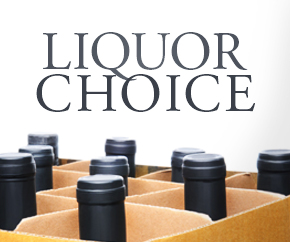Media

Government Wholesale Monopoly Bad for Pennsylvania
Testimony to the Senate Law and Justice Committee yesterday illustrated why wholesale privatization must be a part of “modernizing” liquor sales in Pennsylvania.
The PLCB’s wholesale monopoly can’t serve current, much less expanded, retail outlets, restaurants and taverns. The PLCB does not deliver to restaurants, bars and taverns. In fact, the PLCB contracts with private companies for warehousing and even delivery to their own state stores.
Rep. Kurt Masser (a tavern owner) explains the PLCB’s ordering process: “I get my meat delivered to my restaurant. I get my produce delivered to my restaurant. I get my beer delivered to my restaurant. I have to pick up my liquor order. I can’t get it delivered. And if the liquor order is wrong, I have to take it back to the store and redo it.” A competitive wholesale system will better serve Pennsylvania’s small businesses
Mark Gorman, Senior Vice President of the Distilled Spirits Council of the United States (DISCUS), whose members account for about 80 percent of spirit sales nationwide, testified yesterday on liquor privatization. Mr. Gorman noted:
- Privatization of retail sales should be tied to wholesale privatization of alcohol sales: “…if you decide to privatize one tier of business—you would be best served by privatizing the whole thing.”
- Pennsylvania’s current state-run system does not adequately serve the state’s more than 12 million residents.
- If the PLCB were to expand delivery to more than 15,000 restaurants, bars and hotels, DISCUS estimates the cost to taxpayers as high as $770 million a year. In contrast, private wholesalers operating in most other states deliver products to restaurants.
- The Commonwealth could take in more than $500 million from selling off private wholesale licenses.
For Mark Gorman’s complete testimony, click here.
Testimony from Dawson R. Hobbs of the Wine and Spirits Wholesalers of America expanded on those arguments by explaining why a private wholesale system will increase selection and choices for consumers:
The existence of multiple wholesalers in a state also benefits retailers and consumers because it introduces competition to the market place. Each wholesaler will carry multiple brands in a given product category, for instance vodka or bourbon. Thus wholesalers are competing to make their particular band the product of choice in that market. This competitive dynamic ensures that retailers are receiving the most competitive prices and marketing support from wholesalers. Over time that means that consumers benefit by having the opportunity to purchase the best products at the best prices.
The successful experience from Washington shows that wholesale privatization can occur in a six month period. Pennsylvania lawmakers should follow that example rather than spending millions of dollars to retrofit a bad system that is destined to fail and lose hundreds of millions in new revenue. Let’s get this right the first time by privatizing the wholesale system to ensure retail stores and restaurants get the quality service they so desperately need.